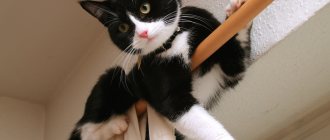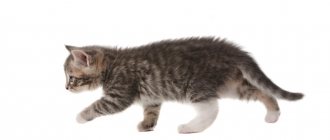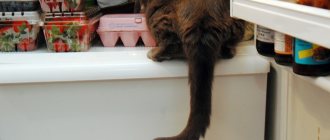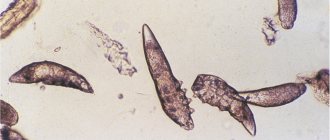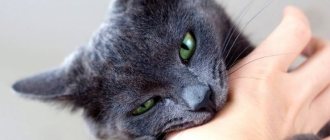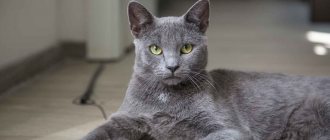Is it safe for your cat to eat the seeds or could it cause serious problems? If this question is now running through your head, then you have come to the right place.
There are many foods your cat would like to try, but what about her health? Before offering your pet anything new, check whether it is safe for him. For example, eating garlic can be fatal to your cat due to the high concentration of the toxin. What about seeds?
Are sunflower seeds poisonous to cats?
According to the ASPCA (American Society for the Prevention of Cruelty to Animals), sunflower seeds are not toxic to cats . So you don't have to worry about your pet getting poisoned. In fact, many veterinarians recommend giving cats unsalted, shelled sunflower seeds in moderation due to their many health benefits.
IMPORTANT! You have to be careful with the number of seeds. One seed will not cause any harm, but overeating will not benefit the cat's health.
Sunflower seeds are a rich source of protein and omega-3 fatty acids. However, you should be sure to remove the seed shells as they contain chemicals that can be toxic to cats if consumed in excess.
Can it be given to cats?
Sunflower seeds
It is important for the animal to consume a purified product.
Veterinarians disagree on the need to feed cats seeds. However, one thing is clear - if given, it will be in strictly limited quantities. When offering sunflower seeds to your pet, you need to remember the following recommendations:
- The seeds must be well dried.
- It is not allowed to use rotten kernels.
- Before feeding, the product must be thoroughly cleaned of husks.
- Well crushed seeds should be given.
- You can feed no more than 10 seeds at one time. This can be done no more than 3 times a week.
Pumpkin seeds
When choosing a pumpkin for preparing a product, you need to pay attention to the ripeness of the melon vegetable. Unripe pumpkin seeds contain a large amount of chenille substances, which can cause poisoning in a cat. After removing the seeds, you need to dry them well. Then they need to be peeled and filmed, chopped and treated to your pet. The daily norm is 5-6 pieces. Just like sunflower seeds, you can give them no more than 3 times a week.
Such seeds can be combined with pumpkin pulp.
It has been proven that vegetables that cat owners add to the menu are of great benefit. Therefore, you can add finely chopped pumpkin to the cooked seeds. The animal will definitely like this treat and benefit it. When feeding pumpkin seeds, you need to carefully monitor the physical condition of your pet and monitor the digestion process. If constipation or diarrhea occurs, such meals should be discontinued.
What are the benefits of seeds for a cat?
Many cats enjoy eating seeds. These treats contain many minerals, nutrients and vitamins. Sunflower seeds are very beneficial for a cat’s body due to the fatty acids, proteins, fiber, microelements and vitamins they contain.
If you regularly feed your cat seeds, her coat will become shinier and healthier.
30 grams of shelled sunflower seeds contain the following nutrients:
| Calories | 160 Kcal |
| Protein | 5.5 grams |
| Fiber | 3 grams |
| Vitamin E | 37% (of the RDI for cats) |
| Vitamin B6 | 11% |
| Iron | 6% |
| Magnesium | 9% |
| Zinc | 10% |
| Copper | 26% |
| Manganese | 30% |
| Selenium | 32% |
Sunflower seeds improve the functioning of the cardiovascular (vitamin E) and nervous (B vitamins) systems, which leads to an increase in the overall vitality of cats. These miracle seeds also contain vitamin A, which improves vision, and vitamin D, which is responsible for healthy bones, nails and teeth.
In addition to the vitamin complex, sunflower seeds are an excellent source of amino acids and polyunsaturated fatty acids. As in the human body, these two minerals have antioxidant effects . Flavonoids and other compounds in the seeds help fight inflammation.
Finally, sunflower seeds contain:
- iodine;
- calcium;
- silicon;
- magnesium;
- sodium;
- phosphorus.
Regular but moderate consumption of sunflower seeds may reduce the risk of diabetes in cats due to the presence of the plant compound chlorogenic acid.
General information about castration
The operation to remove the testes cannot be performed on animals weakened by diseases. Therefore, before implementing it, you will have to visit the veterinarian, perhaps more than once. In addition to the external examination, he may prescribe tests. They will help identify all internal pathologies and diseases. Inexperienced owners ask: at what age are cats castrated? There is no specific criterion in this case. Typically, castration is recommended between the ages of 7 months and one year. But these terms are very arbitrary and largely depend on the development and general condition of the pet.
Many people are also interested in whether it is possible to castrate a cat after a year. In the absence of any contraindications, surgery can be performed at an older age. But it should be taken into account that the expected effect from it may not be. There remains a possibility that the cat will still leave marks and scream at night.
The operation itself also requires preliminary preparation. Typically, preparing a cat for castration involves fasting. To do this, 12 hours before the planned date, the animal stops feeding; some doctors recommend using a laxative to empty the intestines. If this point is neglected, there may be some difficulties when the animal enters and exits anesthesia. This will prevent vomiting in the future. And it will alleviate the already unpleasant condition after anesthesia. In this case, you can give water to drink as usual.
The operation to remove the testes is performed under general anesthesia. Its duration, as a rule, does not exceed 20-30 minutes. After the operation, the doctor will listen to the cat’s heartbeat, after which you can go home. With the correct dose of anesthesia and compliance with all care recommendations, there are almost no complications after castration.
Caring for your cat after surgery is as follows:
- The animal is placed in a warm place with dim light, preferably on the floor.
- After waking up, the tray is placed as close to the animal as possible. In this case, it is desirable that there is no filler in it.
- Due to stress, a cat may relieve itself in the wrong place for the first time. You can’t scold him at this moment. After the pain subsides, he will return to his litter box on his own.
In the absence of complications, rehabilitation of the animal does not exceed 2-3 days. During it, caring for him should be especially careful.
In this case, you should pay attention to the following signs:
- Temperature. Even a short-term increase is a reason to immediately consult a doctor. Fever is the main sign of an infection that has begun to develop.
- Refusal of water and food. Forced fasting for more than a day will lead to dehydration and significantly increase the rehabilitation period.
- Condition of the wounds. Their surface should be dry and clean without signs of suppuration. The owner should also be wary if the wound is still bleeding after a day. Normally, this should only occur in the first hours after surgery.
Recovery of a cat after castration in the absence of complications lasts no more than a week. He usually sleeps a lot during this time, especially in the first days. Also, in the postoperative period, it is necessary to provide careful wound care
It is very important to prevent them from festering. To do this, the cat must be kept in a clean room, and the tray must be washed after each use. Some veterinarians recommend additional wound care for faster recovery of damaged tissue.
It involves applying brilliant green to the surrounding tissue. In this case, you should avoid getting it directly on the incision. In some cases, doctors also prescribe ointments containing antibiotics
Some veterinarians recommend additional wound care to ensure faster recovery of damaged tissue. It involves applying brilliant green to the surrounding tissue. In this case, you should avoid getting it directly on the incision. In some cases, doctors also prescribe ointments containing antibiotics.
In total, cats recover from anesthesia within 24 hours. During this period, their condition should be closely monitored. They should not be allowed to lick the wound, otherwise bleeding may occur and infection may occur.
Find out also about the features of castrating a cat at home.
Can cats eat sunflower seeds in the shell?
Never feed your cat unhulled seeds because:
- Sharp shells can damage your cat's gums and cause stomach problems. Mild damage to the intestines from sunflower shells sometimes leads to cancer. Additionally, the shell is not easy to crack and your cat will likely not like the taste.
- The fibrous shell is quite difficult to digest. Lignin and cellulose often cause intestinal blockages in cats. Signs of intestinal obstruction include: difficult bowel movements, constipation and abdominal pain.
Anemia
Eating feces can be a sign that your cat is sick, and anemia in particular is a condition in which an affected cat may exhibit this sign. Anemia occurs when there is a lack of red blood cells and hemoglobin. Cat owners should check for pale, white, or bluish gums. Anemia may indicate a deficiency of iron, micronutrients, vitamins or essential fatty acids.
Additionally, if your cat eats garbage, it could also be a sign of leukemia (which itself causes anemia) or kidney disease.
When contacting a doctor, your veterinarian will perform a standard examination, including a complete blood count and urinalysis.
A blood test will determine whether the cat is truly anemic, and a urine test will show the concentration level of the urine. If the urine is too dilute, it indicates kidney disease. If your cat shows symptoms of a blockage, your veterinarian will do an x-ray or MRI.
Can cats eat salted sunflower seeds?
Veterinarians do not recommend feeding cats salty snacks, including salted sunflower seeds. Salt has a detrimental effect on a cat's health. Its excess can lead to poisoning, causing vomiting, dehydration, tremors, coma and even death of the pet.
Salt affects a cat's electrolyte balance, even causing neurological effects and causing irreparable damage to the kidneys in the long term. So refrain from feeding your favorite furry friend salted seeds.
Contraindications for use
As for contraindications, here are the features and prohibitions:
- presence of predisposition to allergies;
- periodic disturbances in the digestive system - vomiting, diarrhea or constipation sometimes bother the pet;
- the presence of pathologies of internal organs.
Before starting to introduce seeds into the diet, it is better for the pet owner to consult a veterinarian and show him his pet.
Sunflower or pumpkin seeds can be given to animals, but only in compliance with the permitted dosage. It is better to avoid feeding cats, dogs and parrots seeds if there are concerns for their health.
What is the best way to feed your cat sunflower seeds?
When feeding cats seeds, you should adhere to several rules:
- choose organic seeds. This will minimize the content of chemicals and preservatives. It is best to grow seeds at home, then you will be sure of their environmental purity;
- de-shell store-bought seeds. This minimizes cellulose and sodium content;
- add grated seeds to cat food. You can grind the seeds and sprinkle them on your cat's food. Many cats like the crunchy texture of the seeds;
- Avoid salty and flavored foods. Be sure to read the ingredients. Many stores sell salted and flavored seeds, as well as seed mixtures. Preservatives, artificial flavors, oils or salts are difficult for your cat to digest.
Causes of vomiting
In most cases, vomiting is caused by irritation of the stomach receptors or, in medical terms, has a visceral
origin. The cause is most often acute or chronic diseases of the stomach itself (acute food poisoning, gastritis, stomach ulcers, food allergies). Also, stomach receptors can react to diseases of other organs - the gallbladder, uterus, heart (vomiting is part of the complex of possible symptoms of myocardial infarction).
Vomiting may also be central
origin, that is, caused by pathologies of the central nervous system (brain), such as meningitis, encephalitis, trauma and brain tumors. Vomiting is quite common during migraines. Inner ear problems can also lead to vomiting (in this case, vomiting may occur along with dizziness). If the receptors of the inner ear are excessively irritated (with motion sickness), even a healthy person can vomit, especially if the vestibular apparatus is not trained. Sometimes vomiting is caused by emotional distress (stress) or is a reaction to something that causes extreme disgust (conditioned vomiting).
Irritation of the vomiting center can be caused by toxic substances carried by the bloodstream ( hematogenous-toxic
vomit). Toxic substances can enter the body from the outside (for example, chlorine or carbon monoxide through inhalation), or they can be produced in the body itself as a result of impaired liver or kidney function.
What harm can seeds cause to a cat?
Although sunflower seeds are beneficial in moderation, in excess they lead to:
- Overeating. Just 30 grams of sunflower seeds contain about 163 calories and 2,500 mg of sodium. Veterinarians do not recommend giving your cat snacks that exceed 10% of her total caloric intake.
- Kidney problems due to a high percentage of cadmium. Cadmium is a heavy metal that sunflowers extract from the soil. It is also present in seeds. For a skinny cat or kitten, cadmium is harmful and puts excessive strain on the kidneys. In excess, it can even cause kidney damage. This is why you should limit your cat's seed intake.
- I'm constipated. This mainly happens when you feed seed shells to your pet. Difficult-to-digest lignin and cellulose fibers can form a plug in the intestines that prevents bowel movements.
- Allergies. Some cats develop an allergic reaction to sunflower seeds, which can lead to difficulty breathing, oral swelling, rashes, hives, etc.
Diagnosis and treatment of lacrimation
If your eyes often water, you need to determine what is causing the watery eyes. If increased lacrimation is caused by an allergy, first of all, you should stop contact with the allergen. In case of increased eye fatigue, it is useful to limit visual stress, make it a rule to do eye exercises and take a course of multivitamins. But even in these cases, the most correct thing is to consult a doctor.
Lacrimation can be caused by a whole range of reasons (for example, a reaction to cold and narrowing of the tear ducts). To accurately establish the cause, you need to consult a specialist, and in many cases, laboratory or instrumental studies.
If lacrimation is caused by inflammation, the underlying disease is treated, for which, as a rule, the doctor prescribes antimicrobial and anti-inflammatory eye drops. If lacrimation is caused by narrowing of the lacrimal ducts, surgical treatment may be prescribed.
Is it possible to give melon to rats?
Rats should always have a bowl of food. ... They should be given every day or every other day, 30-40 g per rat Watermelon, apricot, avocado, pineapple, grapes, cherry, melon, strawberry, cranberry, raspberry, mango, peaches, currant, persimmon, blueberry, apple, basil, zucchini, cilantro, parsley, celery, lettuce, zucchini, pumpkin, dill.
Interesting materials:
How to make a slide? How is BC and after divided? How can kids play sports in The Sims 4? How did Dima Bilan become popular? How to add an address to the VK community? How to add audio to WhatsApp status? How do I add data to the legend? How to add a friend to Warface on PS4? How to add a contact photo to a message? How to add a photo to your booking profile?
